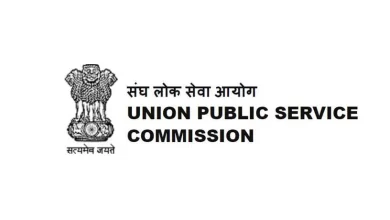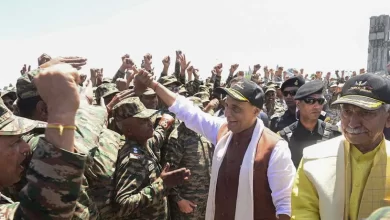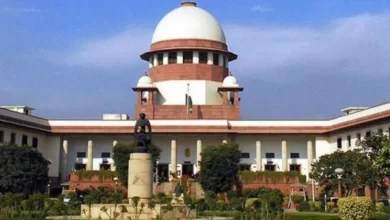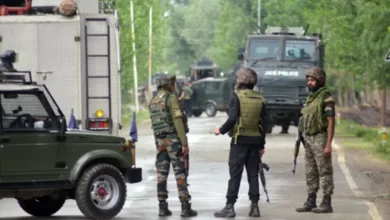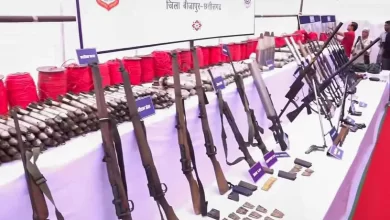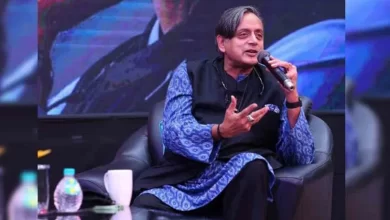SC status for Christians, Muslims: SC asks if panel’s report in ’07 can be relied upon

The Supreme Court on Wednesday set out to examine whether the 2007 report of the former Chief Justice of India (CJI) Ranganath Mishra Commission and the empirical data forming the basis to recommend scheduled caste (SC) status for Dalit Christians and Muslims can be relied upon if the Centre has refused to accept the same.
With the government forming a fresh commission of inquiry in October to examine this aspect under the chairmanship of ex-CJI KG Balakrishnan, the Centre had urged the court not to proceed with the matter till a report by the new panel, expected in two years, is made available. It had refused to go by the 2007 Ranganath Mishra Commission alleging that the report was “flawed” as its findings were made without conducting any field studies. The petitioners, on the other hand, wanted the court to proceed with the matter as the issues raised were purely in the constitutional realm.
The bench, also comprising justices Ahsanuddin Amanullah and Aravind Kumar, said, “There is no difficulty in examining the constitutional questions. The Ranganath Mishra Commission report may or may not be accepted by the government. But how do we look into the report which they (the Centre) do not accept.”
Further, the bench added, “If the report is not accepted, can we rely on the data relied in the report in coming to any conclusion?”
The court posted the matter in July and said, “No doubt this (petition) raises an interesting debate as it also needs to be considered whether the extent of judicial review allows a writ to be issued for inclusion of SCs in the Presidential Order of 1950.” Under this order, SC status is provided to Hindus, Sikhs and Buddhists.
In December, the court was in a dilemma whether to go ahead with the matter or hold off till the fresh panel submits its report. Additional solicitor general (ASG) KM Nataraj appearing for the Centre informed the court that the commission had already begun its work and unless there is relevant material, there was no question of going into the constitutional issues.

Hindustan TimesFollow
SC status for Christians, Muslims: SC asks if panel’s report in ’07 can be relied upon
Story by Abraham Thomas, New Delhi • 1h ago
The Supreme Court on Wednesday set out to examine whether the 2007 report of the former Chief Justice of India (CJI) Ranganath Mishra Commission and the empirical data forming the basis to recommend scheduled caste (SC) status for Dalit Christians and Muslims can be relied upon if the Centre has refused to accept the same.
The new fully electric Volvo EX90. Subscribe online today.
With the government forming a fresh commission of inquiry in October to examine this aspect under the chairmanship of ex-CJI KG Balakrishnan, the Centre had urged the court not to proceed with the matter till a report by the new panel, expected in two years, is made available. It had refused to go by the 2007 Ranganath Mishra Commission alleging that the report was “flawed” as its findings were made without conducting any field studies. The petitioners, on the other hand, wanted the court to proceed with the matter as the issues raised were purely in the constitutional realm.
The bench, also comprising justices Ahsanuddin Amanullah and Aravind Kumar, said, “There is no difficulty in examining the constitutional questions. The Ranganath Mishra Commission report may or may not be accepted by the government. But how do we look into the report which they (the Centre) do not accept.”
Further, the bench added, “If the report is not accepted, can we rely on the data relied in the report in coming to any conclusion?”
The court posted the matter in July and said, “No doubt this (petition) raises an interesting debate as it also needs to be considered whether the extent of judicial review allows a writ to be issued for inclusion of SCs in the Presidential Order of 1950.” Under this order, SC status is provided to Hindus, Sikhs and Buddhists.
In December, the court was in a dilemma whether to go ahead with the matter or hold off till the fresh panel submits its report. Additional solicitor general (ASG) KM Nataraj appearing for the Centre informed the court that the commission had already begun its work and unless there is relevant material, there was no question of going into the constitutional issues.
Related video: SC To Hear Plea On Alleged Misuse Of Central Agencies | Opposition Flags Concerns About Misuse | English News (Times Now)
The Supreme Court today is scheduled to hear a plea
Loaded: 17.70%Play
Current Time 0:04
/
Duration 3:57QualitySettingsSubtitlesFullscreen

SC To Hear Plea On Alleged Misuse Of Central Agencies | Opposition Flags Concerns About Misuse | English NewsUnmute
0
More videos
- India TodaySetback for Opposition as SC rejects plea on ‘misuse’ of central agencies. What will they do next?52:54
- WYFF 4 Greenville-SpartanburgReligious display at South Carolina courthouse subject of national group’s demands for removal0:37
- India TodayKarnataka polls: BJP releases second list of 23 candidates8:50
The bench told the Centre, “Different political dispensations may have different ideology to this issue. Two decades have gone by as these petitions are pending since 2004. A previous commission gave its report and in your wisdom you have said, we won’t accept it. Tomorrow, even this (Balakrishnan) commission will meet the same fate. How many commissions can be expected to go into this matter?”
The law officer took the bench through the elaborate terms of reference of the Balakrishnan Commission to show that such an exercise was not carried out by the earlier commission headed by ex-CJI Ranganath Mishra while serving as the head of the National Commission on Religious and Linguistic Minorities.
The bench told the ASG, “You need to recheck. Have you gone through the (Ranganath Mishra) report? It is not that perfunctory. You cannot make a generalised statement.”
Advocate Prashant Bhushan, who appeared for NGO Centre for Public Interest Litigation (CPIL), told the court that the 2007 report had sufficient material for the court to decide whether excluding Dalit Muslims and Christians from the ambit of SCs can be justified under the Constitution. He said that the petitions do not seek to add to the Presidential Order of 1950 but question the exclusion of Dalits of some religions as backwardness cannot be linked with any religion. He further stated that awaiting the Balakrishnan Commission report will make it an unending exercise.
The bench agreed that social stigma and religious stigma are two different things. It said, “Under our Constitution, untouchability is abolished but even with conversion, the social stigma is still carried by them (SCs) for which they seek protection under law. We cannot shut our eyes to the ground realities while considering these matters.”
The judges further observed that while examining these petitions, it will be required to go into the structure of the three religions – Hinduism, Buddhism, Sikhism – enjoying SC status on whether they accept the caste system.
The matter will be next heard on July 11. The bench indicated to the petitioners, the Centre and groups supporting the Centre to submit their written arguments before the next date of hearing to enable the court to lay down a time frame for hearing the matter.

